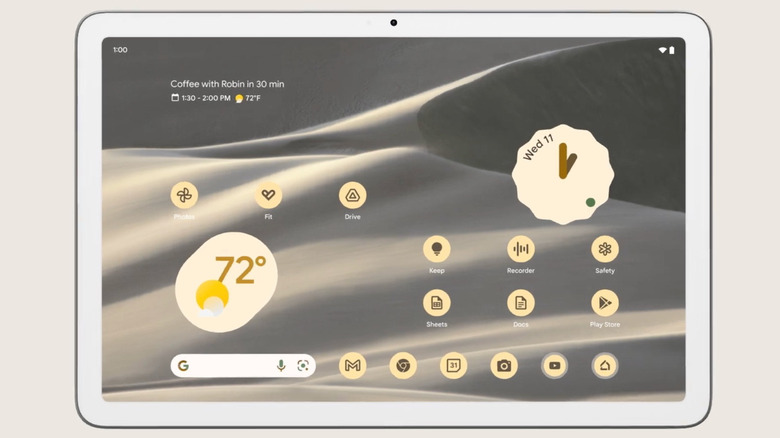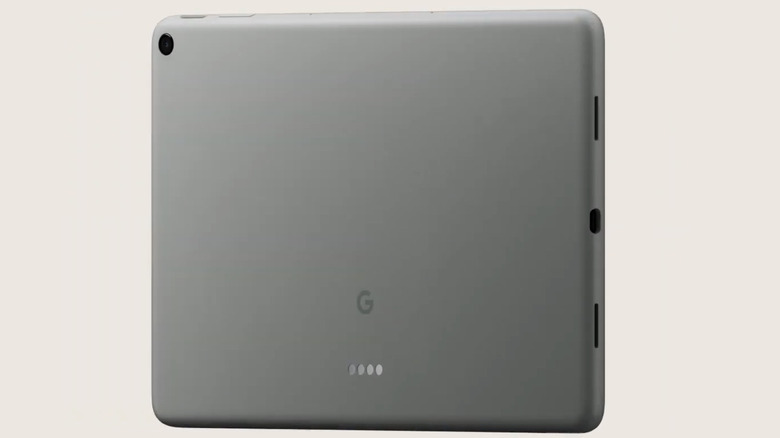Google Pixel Tablet Is Taking Another Shot At Android's Biggest Failure
Amid its product announcements at Google I/O 2022, the company teased an upcoming Android tablet that'll launch as part of the Pixel family. The move is an exciting one, though it's fair to say that consumers remain skeptical over whether Google can offer a truly innovative tablet experience. It's no secret that Android tablets have long been neglected and fallen far behind the iPad, and it's hard to imagine Google will take on Apple's competing slate in any sort of substantial way. That said, there is a good reason to be optimistic about the upcoming device: the move shows that Google still cares about tablets on some level.
The company offered only a brief glimpse of the device, which is visually lackluster, to put it mildly. The flash of a render that made its appearance during the I/O keynote showed a slate that looks considerably dated and will no doubt seem even more antiquated when the Google Pixel Tablet hits the market in 2023. It's possible the design previewed today won't be the final version made available to consumers, however, and it seems likely the near-immediate consumer criticism of the Pixel Tablet's aesthetics may prompt a redesign.
Unfortunately, Google didn't have too much to reveal about the upcoming Pixel Tablet, though it did drop one key detail: consumers can expect it to pack the company's Tensor processor, the same found within the Pixel smartphones. That's according to Google SVP of devices and services Rick Osterloh, who introduced the upcoming Android tablet during the company's keynote.
Can Android tablets make a comeback?
Google aims to design the Pixel Tablet as a portal for entertainment, which means it's likely safe to assume the device won't be intended for power users and Android fans hoping for a true iPad Pro competitor. Samsung is arguably the top player in the Android tablet market at this time, and it remains to be seen whether Google plans to take on the South Korean company or if the Pixel Tablet will just be a way for it to round out its Pixel product family.
Based on the keynote speech and Osterloh's statements, it seems Google's relentless focus on Chrome OS has come at a cost: the simplistic operating system and its related (largely inexpensive) laptops are mostly shoehorned into the education and work markets and don't seem to be something the average consumer is interested in using as an entertainment portal. That's something Android tablets address, as they're essentially a big-screen version of the smartphones many people already use to play games and watch videos.
Regardless of what the company plans, the Pixel Tablet represents a redirect for Google, which had previously abandoned the idea of creating new Android slates entirely. The Pixel Tablet itself may not be anything to write home about, but it's possible the device is ultimately intended to serve a different purpose: it could revitalize the Android tablet market, giving both manufacturers and developers a reason to care again. The model will join Android 12L and the eventual Android 13 upgrades intended specifically for large screens, potentially paving the way for a revitalization of the Android tablet space after years of iPad dominance.

